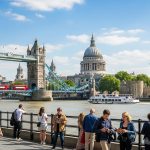Immediate cultural effects of UK tourism on local communities
Tourism’s impact on local culture in the UK is often immediate and visible. As visitors flood into communities, longstanding traditions and customs can shift noticeably. Local festivals, for example, may adapt to appeal to tourists, blending original elements with new influences. This leads to an adaptation of cultural practices, where locals might introduce novel customs inspired by visitors or alter existing ones to sustain interest and economic benefit.
One clear example of these cultural effects of tourism is the influence on the local language and dialect. In regions with distinctive accents or languages, such as parts of Scotland or Wales, increased tourist interaction often introduces new vocabulary or even temporary linguistic shifts to accommodate communication needs. These linguistic changes reflect how tourism can subtly transform everyday lifestyle and social behaviors within communities.
Additional reading : What are the best ways to experience traditional British festivals?
Such immediate effects are a two-way street. While local ways adapt, visitors also bring fresh cultural elements, leading to a dynamic exchange. Communities must balance maintaining their identity with embracing these changes. Understanding these immediate cultural effects of UK tourism helps highlight the nuanced relationship between visitors and the living culture they encounter.
Immediate cultural effects of UK tourism on local communities
Tourism’s impact on local culture often triggers swift shifts in community traditions and customs. When tourists arrive, longstanding practices may be reshaped to accommodate or attract visitors. For instance, traditional ceremonies might include new elements or schedule adjustments, reflecting how local culture changes in direct response to tourism demands and interests.
Have you seen this : How Can You Discover the UK’s Most Enchanting Castles?
One of the most immediate cultural effects of tourism appears in the language and daily lifestyle of communities. Locals frequently adapt their speech, introducing new phrases or simplifying dialects to communicate effectively with tourists. This linguistic flexibility illustrates how tourism disrupts and transforms everyday interactions almost instantly.
Beyond language, tourism encourages the introduction and blending of new cultural practices. Locals may adopt visitor-inspired habits or crafts, creating hybrid customs that blend old and new. These adaptations demonstrate a community’s resilience but also underscore complex tensions between preserving heritage and embracing change.
By understanding these rapid transformations, we see that the UK tourism impact is multifaceted—it not only alters visible traditions but also reshapes social behaviours and identities, affirming the dynamic nature of culture under the influence of contemporary tourism.
Immediate cultural effects of UK tourism on local communities
Tourism’s immediate impact on local culture is vividly seen in community traditions quickly adapting to new visitor influences. Shifts often involve modifying festivals, ceremonies, or social customs to better engage tourists, making tradition more accessible yet altered. This dynamic showcases the cultural effects of tourism as ongoing, responsive changes rather than static preservation.
Locals also introduce new cultural elements inspired by contact with visitors, resulting in hybrid customs that blend external ideas with indigenous ones. Such innovations reflect how communities creatively navigate evolving identities amid steady tourist influx. This process demonstrates the flexibility inherent in local culture changes driven by tourism pressures and opportunities.
Language serves as a prime example of immediate transformation. Residents might simplify complex dialects, adopt internationally recognizable phrases, or borrow vocabulary from visitor languages to enhance communication. These linguistic shifts occur rapidly, revealing the depth of UK tourism impact beyond visible customs—extending to everyday communication and social behaviour.
In essence, the cultural effects of tourism in UK communities are multifaceted and immediate, reshaping traditions, prompting new practices, and adjusting language rapidly to accommodate an ever-changing cultural landscape.
Immediate cultural effects of UK tourism on local communities
Tourism prompts swift local culture changes, often reshaping community traditions and customs almost instantly. Festivals and ceremonies may be adjusted in timing or presentation to cater to visitors, reflecting the UK tourism impact on how culture is practiced daily. These shifts are not only about changing formats but also about introducing fresh cultural elements inspired by tourists’ interests.
Locals frequently incorporate new cultural effects of tourism by embracing visitor habits or crafts, creating hybrid cultural expressions that blend traditional and novel features. Such adaptations demonstrate the community’s creativity in responding to tourism demands while maintaining connection to their heritage.
One of the most visible immediate impacts appears in language and lifestyle. Residents often modify local dialects—simplifying or borrowing words—to facilitate clearer communication with tourists. This linguistic flexibility accelerates social interaction changes, highlighting the depth of UK tourism impact beyond mere event modification.
These rapid changes illustrate how cultural effects of tourism permeate everyday life, influencing not just traditions but also social behaviors and communication patterns. Communities navigate these transformations carefully, balancing the preservation of identity with openness to ongoing cultural adaptation.
Immediate cultural effects of UK tourism on local communities
Tourism prompts swift local culture changes, with community traditions and customs quickly adapting to new visitor influences. Such UK tourism impact often leads to shifts in festival formats, ceremony timings, or presentation styles, aiming to enhance tourist engagement while altering original practices. These adjustments are examples of the cultural effects of tourism that emerge almost instantly as locals respond to tourism flows.
Locals frequently introduce new cultural practices inspired by visitors, blending traditional customs with novel elements. This creative adaptation results in hybrid traditions reflecting both heritage and external influences. These developments illustrate the dynamic nature of local culture changes triggered by tourism and reveal communities’ resilience in balancing heritage with innovation.
Immediate influences also extend to language and lifestyle. Residents often simplify regional dialects or incorporate international phrases to ease communication, showing how the UK tourism impact reshapes everyday social interactions. These linguistic adaptations accelerate cultural transformation beyond visible customs, highlighting tourism’s broad-reaching role in molding local identity.
In summary, the cultural effects of tourism penetrate deeply and rapidly, influencing traditions, introducing fresh customs, and altering communication to reflect evolving community realities in the face of growing visitor presence.
Immediate cultural effects of UK tourism on local communities
Tourism exerts a significant UK tourism impact on community traditions and customs almost immediately. Local festivals and ceremonies frequently experience shifts in format and timing, reflecting a practical response to visitor interests. These local culture changes are evident when original practices adapt to ensure relevance and appeal in a tourism-driven context.
Beyond modifications, tourism fosters the introduction of new cultural practices. Residents may adopt crafts, food, or social customs inspired by visitors, creating a blend of traditions that chart evolving identities. This proactive adaptation illustrates communities’ efforts to harness tourism benefits while navigating cultural preservation challenges.
Language and lifestyle are also directly influenced. Locals often modify dialects, simplifying or incorporating widely understood phrases to enhance communication with tourists. These linguistic adjustments are rapid and widespread, marking an essential facet of the immediate cultural effects of tourism. They reveal how everyday interactions transform, not only socially but also pragmatically, to meet the demands of increasing visitors.
Together, these shifts emphasize that the UK tourism impact on local culture operates on multiple levels, reshaping ceremonial traditions, introducing fresh cultural elements, and realigning communication patterns to create a continuously evolving cultural landscape.


